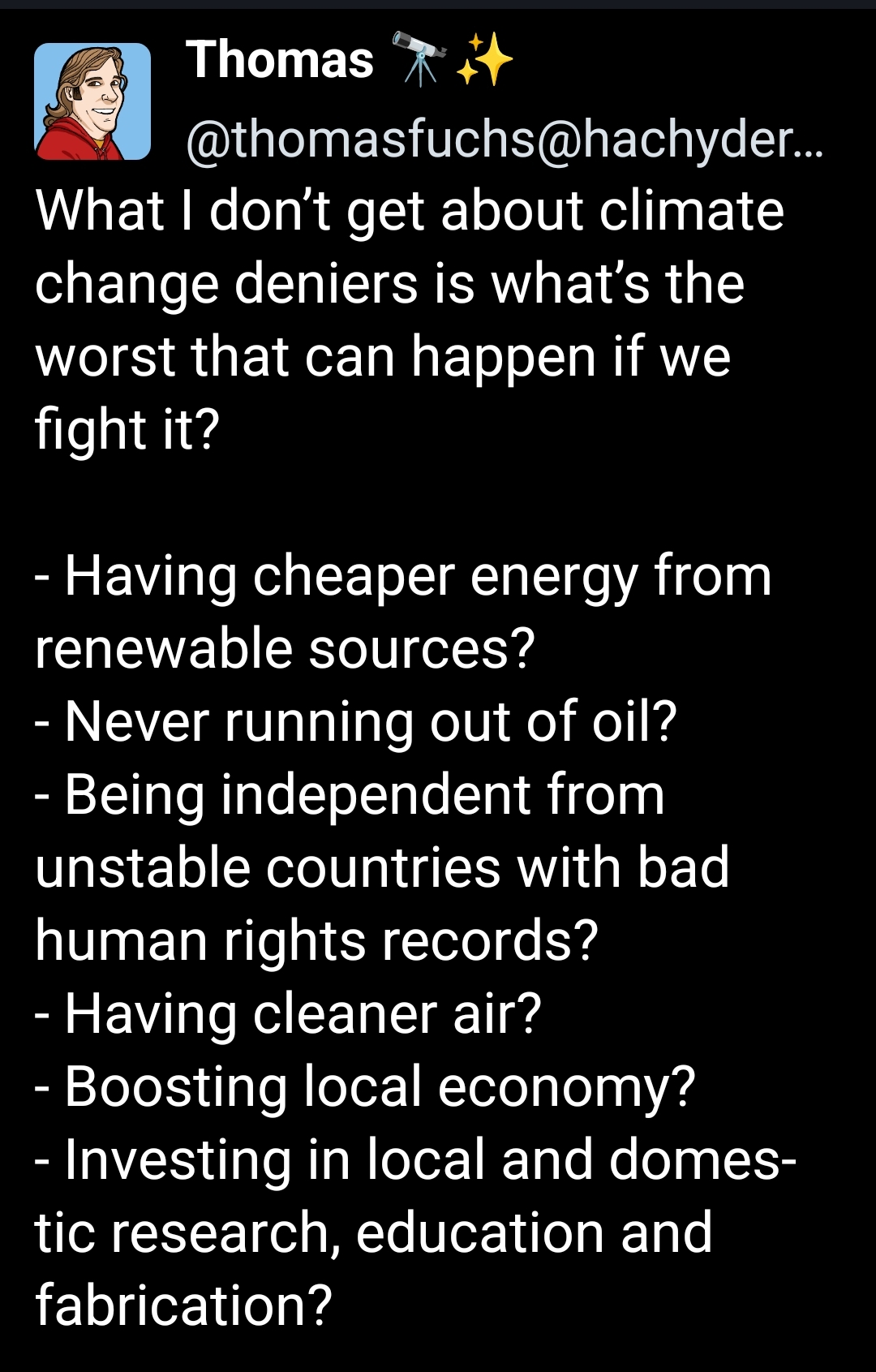this post was submitted on 18 Aug 2024
1528 points (98.6% liked)
People Twitter
7063 readers
1497 users here now
People tweeting stuff. We allow tweets from anyone.
RULES:
- Mark NSFW content.
- No doxxing people.
- Must be a pic of the tweet or similar. No direct links to the tweet.
- No bullying or international politcs
- Be excellent to each other.
- Provide an archived link to the tweet (or similar) being shown if it's a major figure or a politician.
founded 2 years ago
MODERATORS
you are viewing a single comment's thread
view the rest of the comments
view the rest of the comments

One of the rationales of sane people regarding alternative energy sources is the cost of using "more expensive" energy sources when cheap (at least for the time being), albeit more polluting, alternatives like coal and natural gas are readily available.
The argument is that if Country A switches to full renewables, in the time it takes for the prices to become low enough to be competitive against coal, Country B, which is unscrupulous in its development and continues using coal as its main energy source, would gain a significant advantage over Country A.
You could even argue that for Country B, switching to alternative energy sources would be unfair, considering that Country A enjoyed decades of rapid growth and development using cheap coal, whereas Country B would not. Since Country A won't fully switch to alternative energy sources to maintain its supremacy, and Country B won't change for the sake of its development, we're effectively in a deadlock.
Personally, I think all countries should work together and switch to renewable energy sources to reduce the impact of climate change. Unfortunately, the world is not so simple, and the conflict is more nuanced than simply "keeping profits vs. creating a better world."
It's just long term vs. short term thinking really. And the question of who pays.
It costs an insane amount of money to have wars to secure the oil supply. But it's not the oil industry that pays that cost. So oil is only "cheaper" from a very limited context, but in a broader context, it's insanely expensive.
From an economic perspective, investing money into the infrastructure needed to eliminate dependency on oil is a no brainer. It'll probably cost less than the next oil war, and once that cost is paid, there is no need for multiple future oil wars.
Given the US pays for most of the costs of oil wars, you'd think the US would be leading the charge towards transitioning off of oil. But instead there's a lot of resistance in the US for this. There's a strange denial that leads people to simultaneously demand the government to make gas cheaper, while also being against wars in the middle east. How do people think the government makes the price of gas cheaper?
If only all the countries could come to some kind of climate energy agreement. Maybe they can meet someplace like oh say Paris or something and sign an agreement like that. 🤔
We're already at the point that renewables are far cheaper than the alternatives. It's just the capital costs that are higher (compared to keeping existing FF), but that's not a huge issue for rich, developed countries.
So rich countries can massively invest in renewables and press their advantage. Ideally, these rich countries also subsidise renewable energy in developing countries (and to some extent, they are). But even without that in many cases it's cheaper to just skip building a whole FF industry altogether and go straight to renewables.